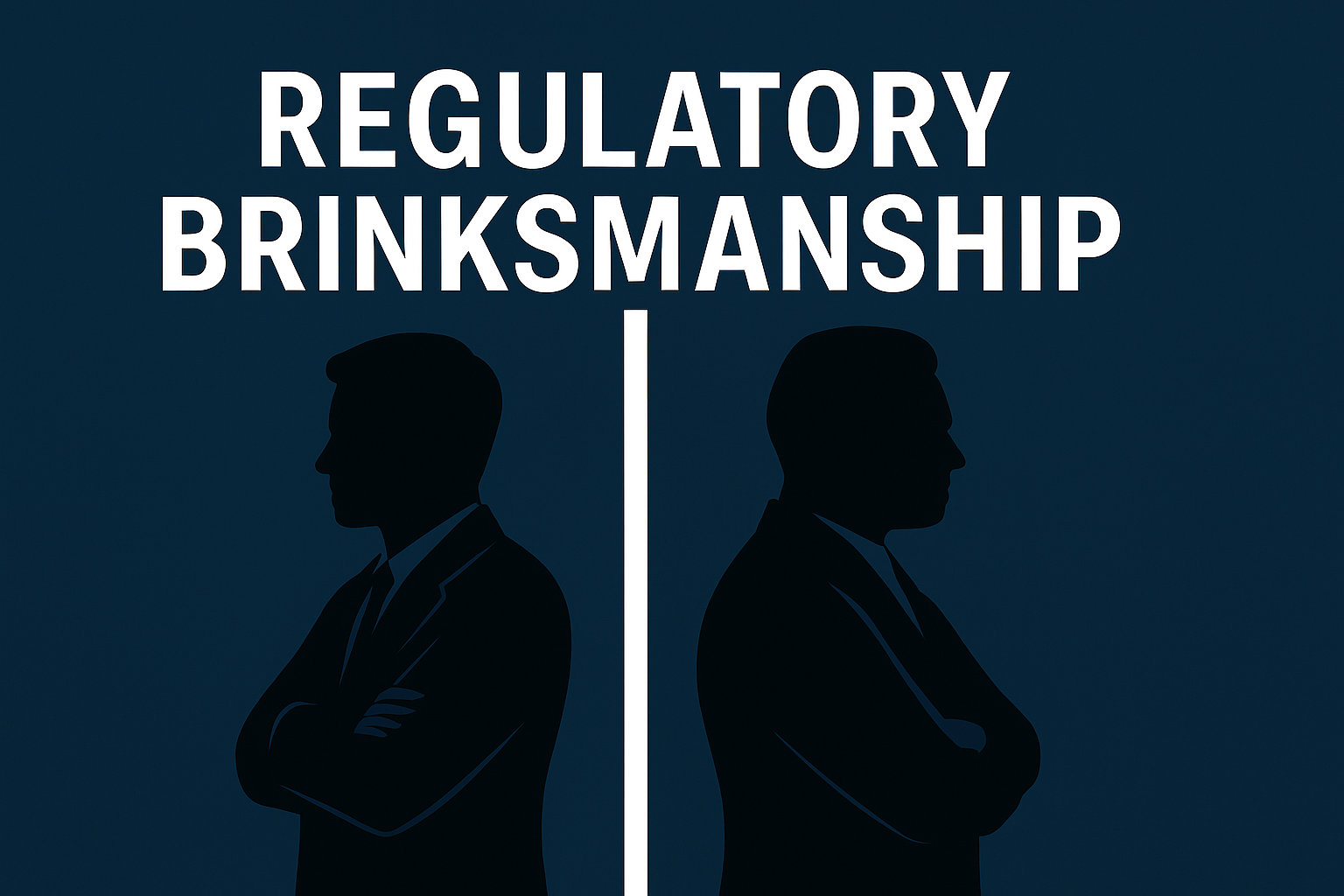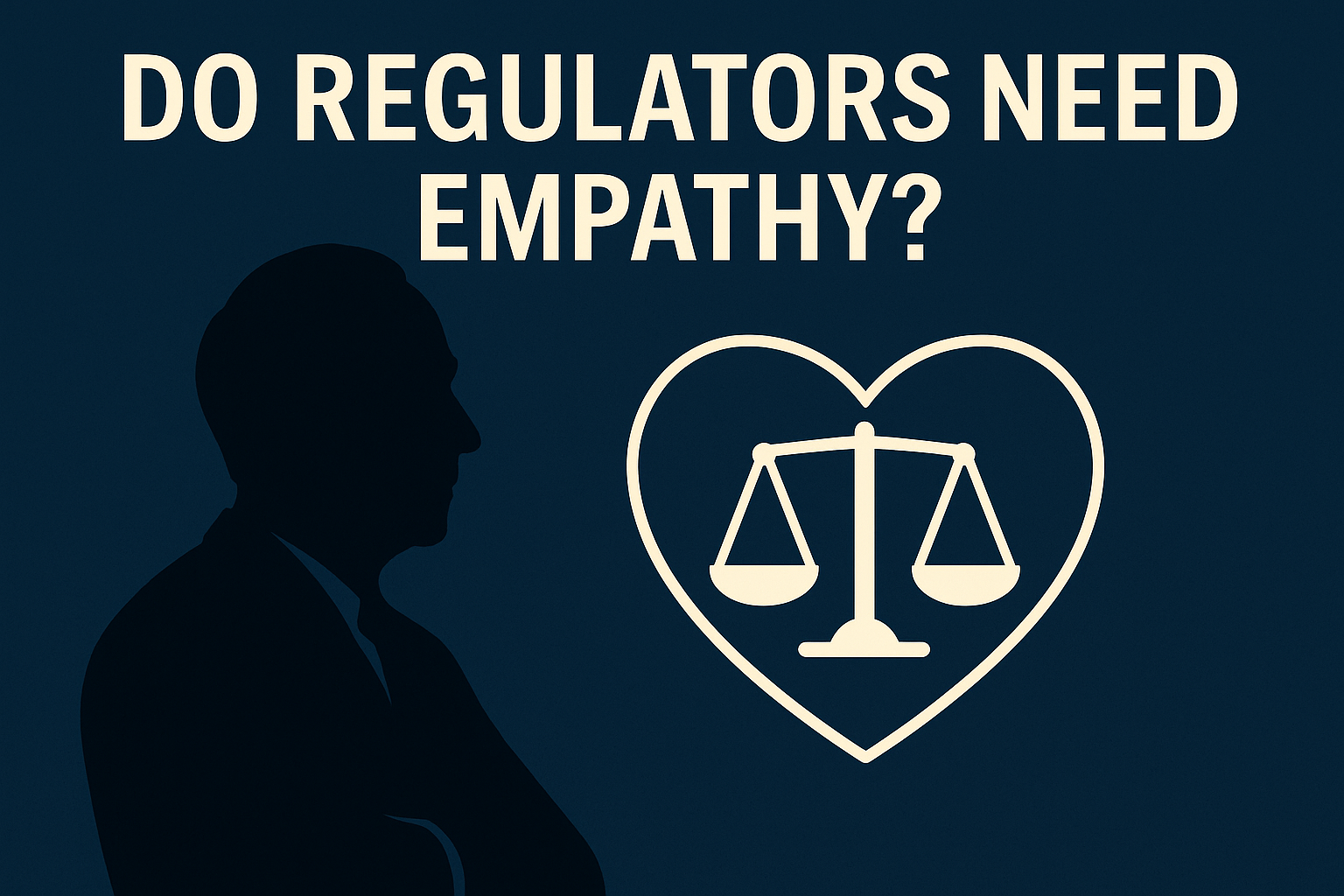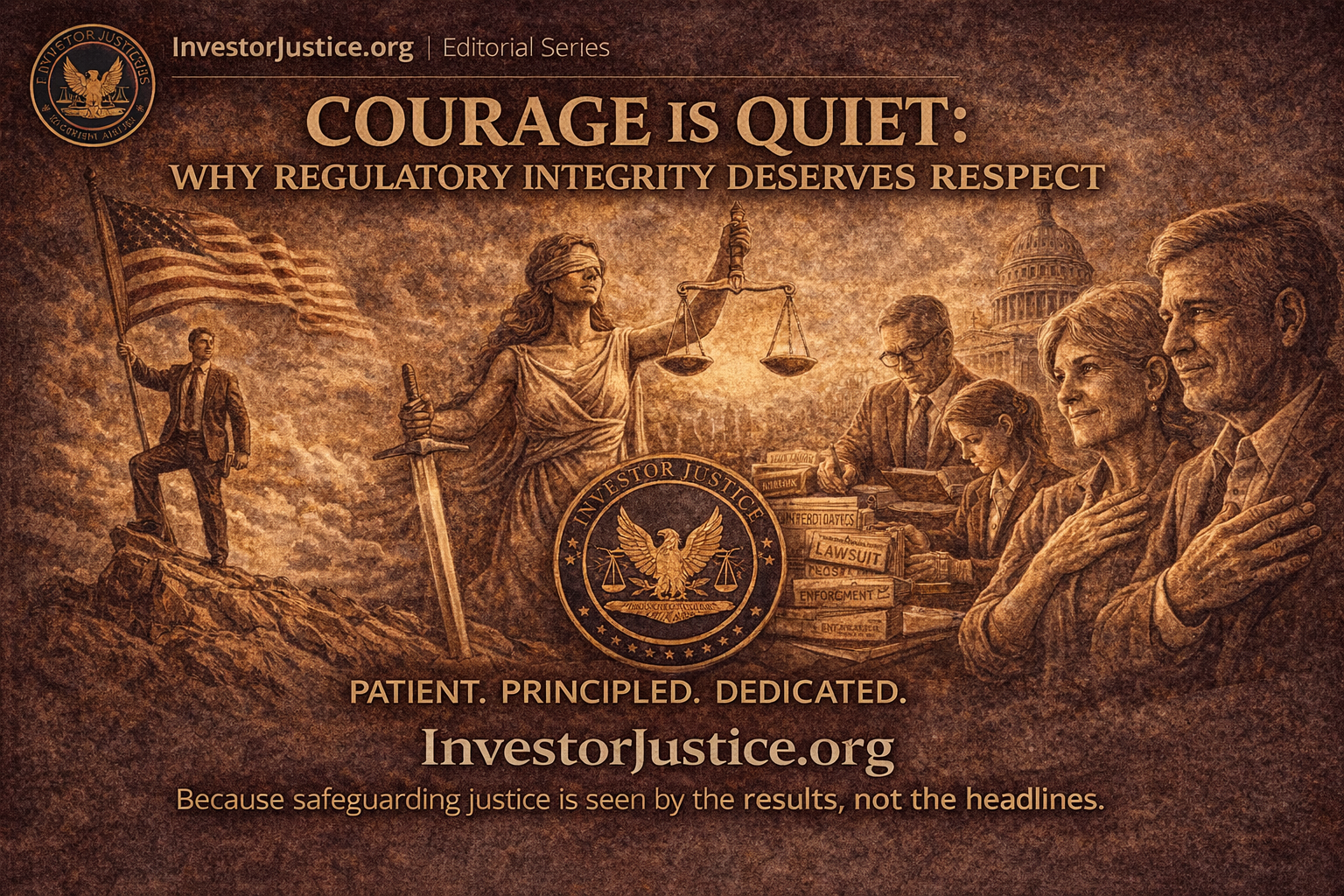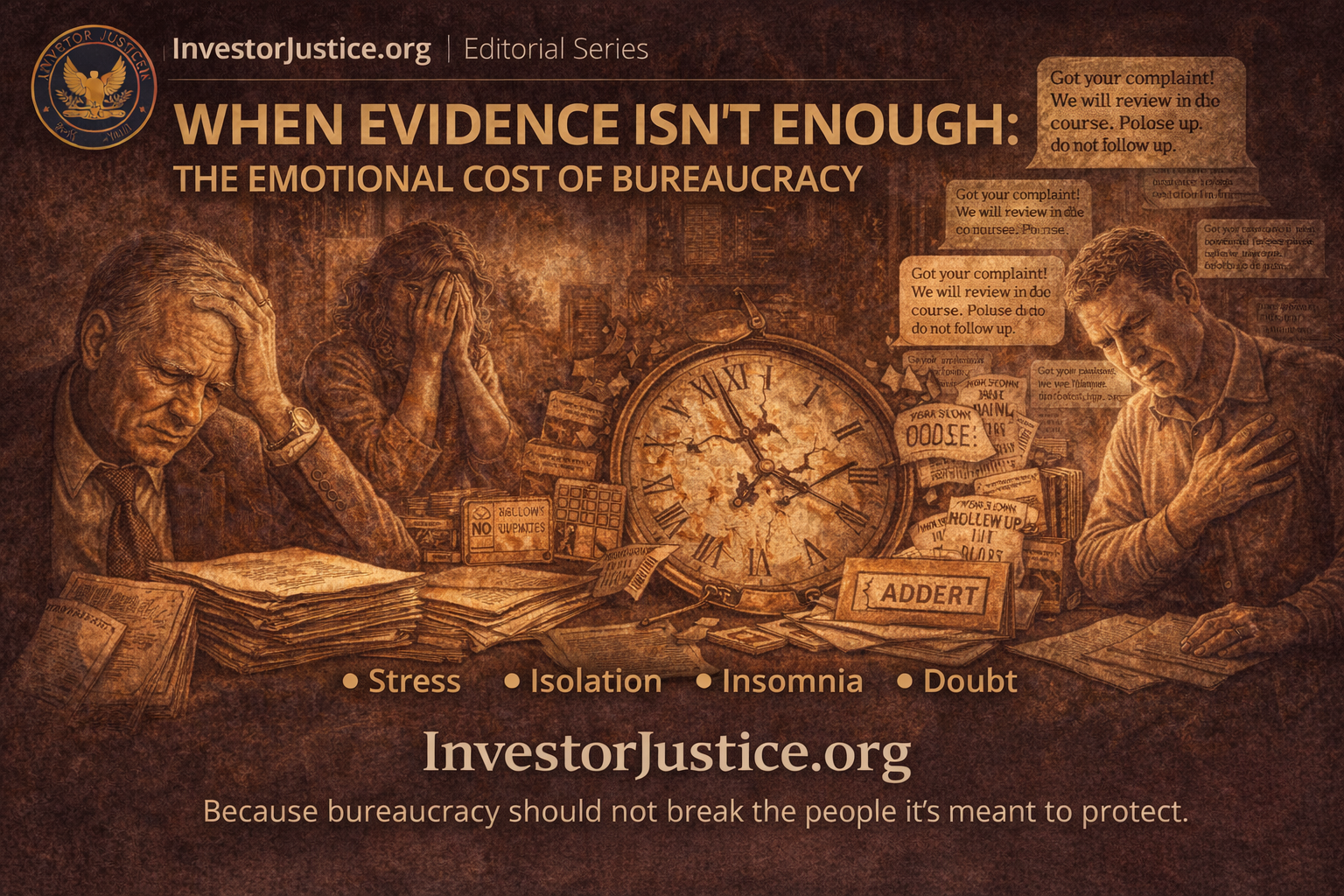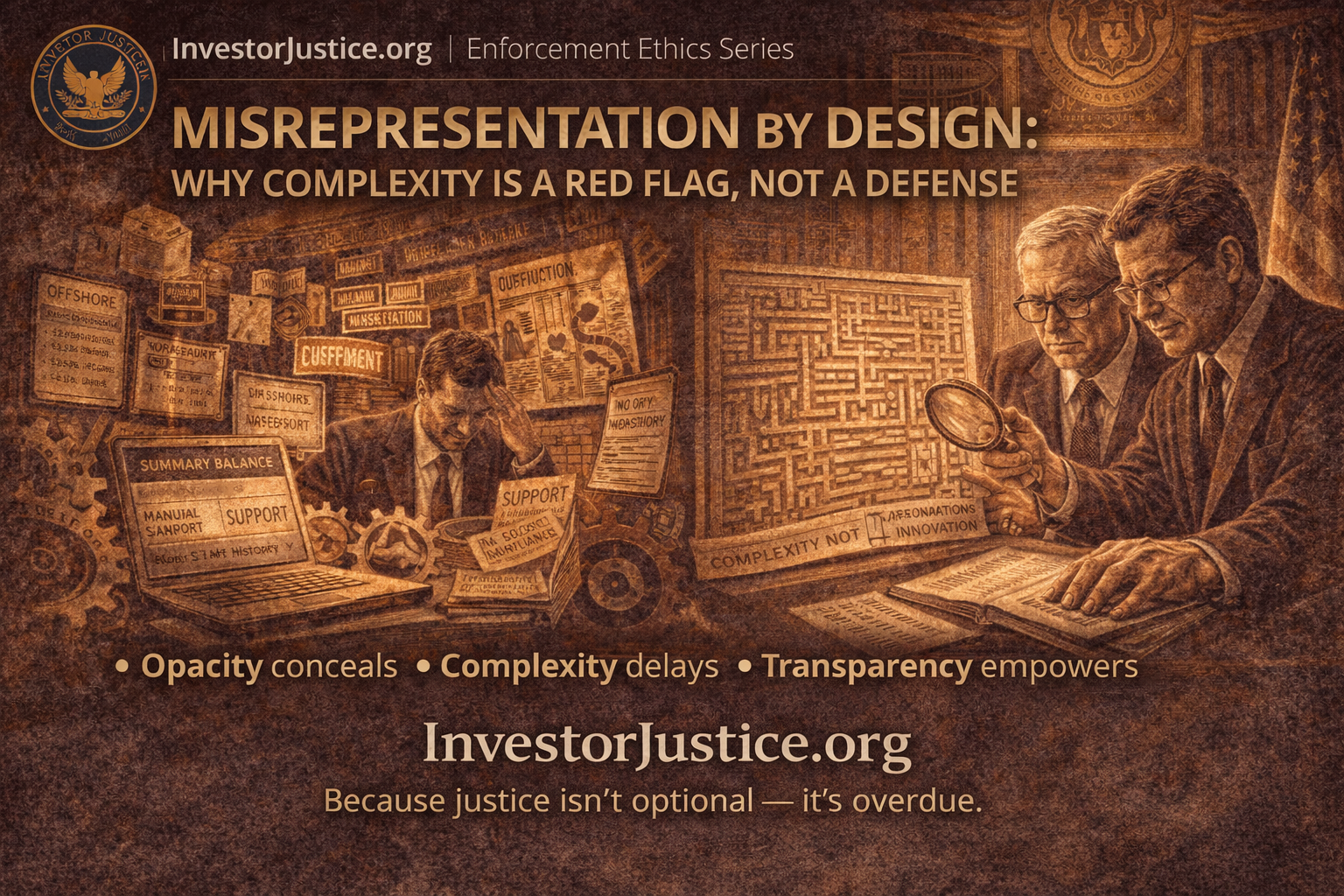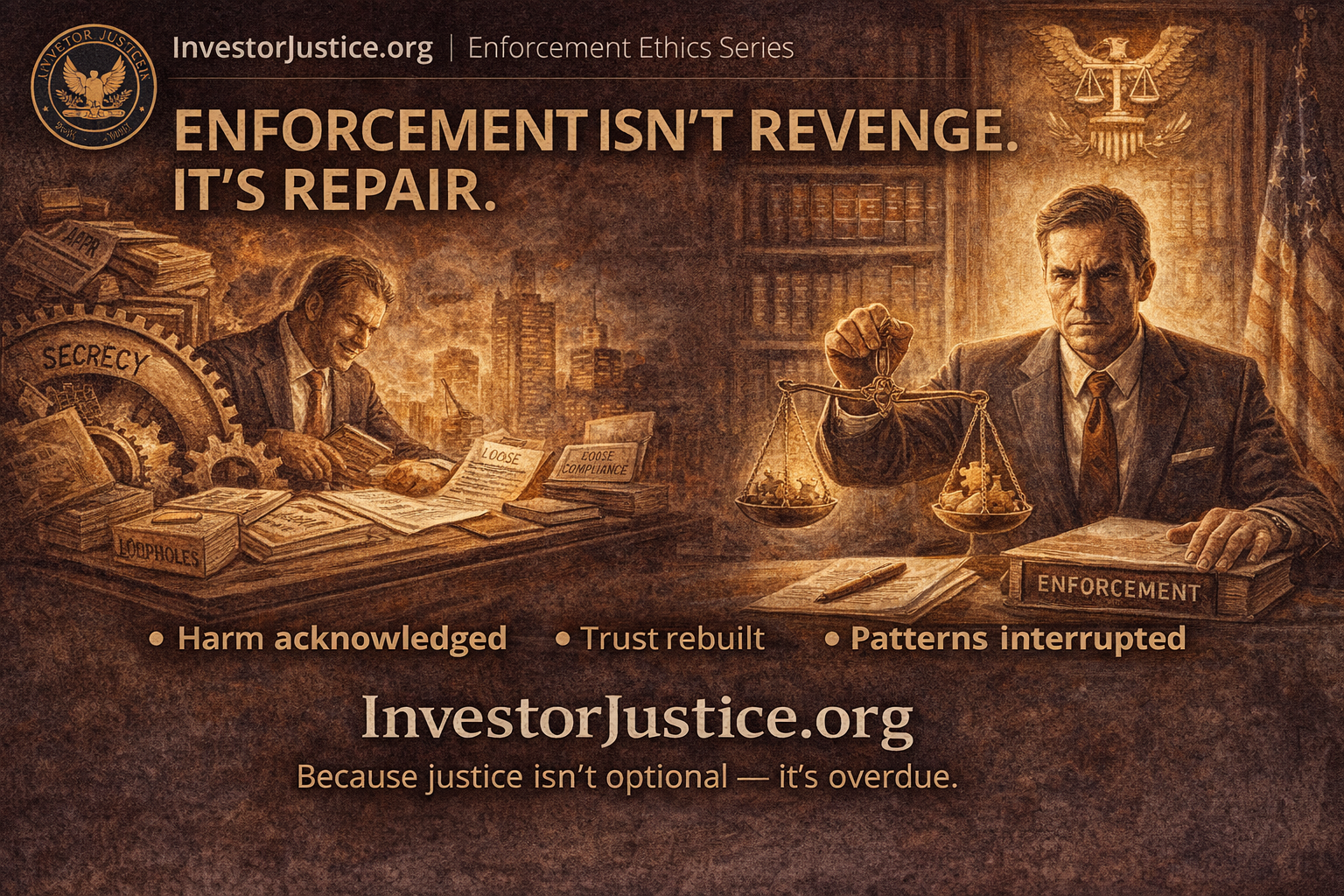Table of Contents
InvestorJustice.org | Civic Accountability Editorial
Why agencies that should collaborate instead compete and how that rivalry harms the very people they exist to protect.
Why This Matters
At a time when global financial systems operate seamlessly across borders, the regulators meant to protect the public remain trapped in silos.
Each agency clings to its jurisdiction, reputation, and narrative even as citizens fall between the gaps they refuse to close.
When coordination fails, accountability fragments.
When accountability fragments, justice disappears.
The Paradox of Protection
Regulators such as the California Department of Financial Protection and Innovation (DFPI) and FINMA in Switzerland both have clear statutory mandates: protect consumers, enforce transparency, and deter misconduct.
Yet in practice, coordination between them is the exception, not the norm.
Each regulator wants to be seen as the lead, the primary defender of its own jurisdiction.
That might make sense politically, but it’s a disaster operationally.
The result is what can only be described as regulatory brinksmanship; agencies watching one another, waiting to act second, and competing for credit instead of closure.
The Human Cost of Coordination Failure
Behind the policy language and memoranda of understanding are real people:
- retirees who can’t access records,
- investors waiting years for restitution,
- families trapped in paperwork purgatory because “another authority is reviewing.”
Each deferral compounds harm.
Every regulator that hesitates to pick up the phone extends the damage it was created to prevent.
In complex cross-border cases, silence between agencies functions like negligence.
It is not malicious, it is procedural but the effect is the same: justice deferred becomes justice denied.
Why Ego Still Rules the Room
Ask any regulator privately, and they’ll acknowledge the problem.
Coordination takes time, invites scrutiny, and risks jurisdictional embarrassment.
Agencies fear being undermined, out-credited, or held responsible for another’s misstep.
So they delay.
They convene committees.
They issue “joint statements” that say nothing.
And in doing so, they leave the public with the worst of both worlds; multiple regulators, but no regulation.
The Civic View: Collaboration Is the Minimum Standard
In the 21st century, regulatory coordination isn’t innovation, it’s hygiene.
Cross-border finance demands that agencies act as a network, not a relay race.
The question isn’t who gets credit, but who gets protection.
Transparency between regulators should be as mandatory as transparency from firms.
If data can cross borders instantly to sell a product, oversight should cross borders instantly to protect the buyer.
A Simple Mandate
Regulators must remember: the public doesn’t care which agency acted first, only that someone acted in time.
The next generation of financial governance will be judged not by who writes the toughest rules, but by who collaborates the fastest when things go wrong.
Coordination is not weakness, it is courage. The courage to put citizens before institutional ego.

